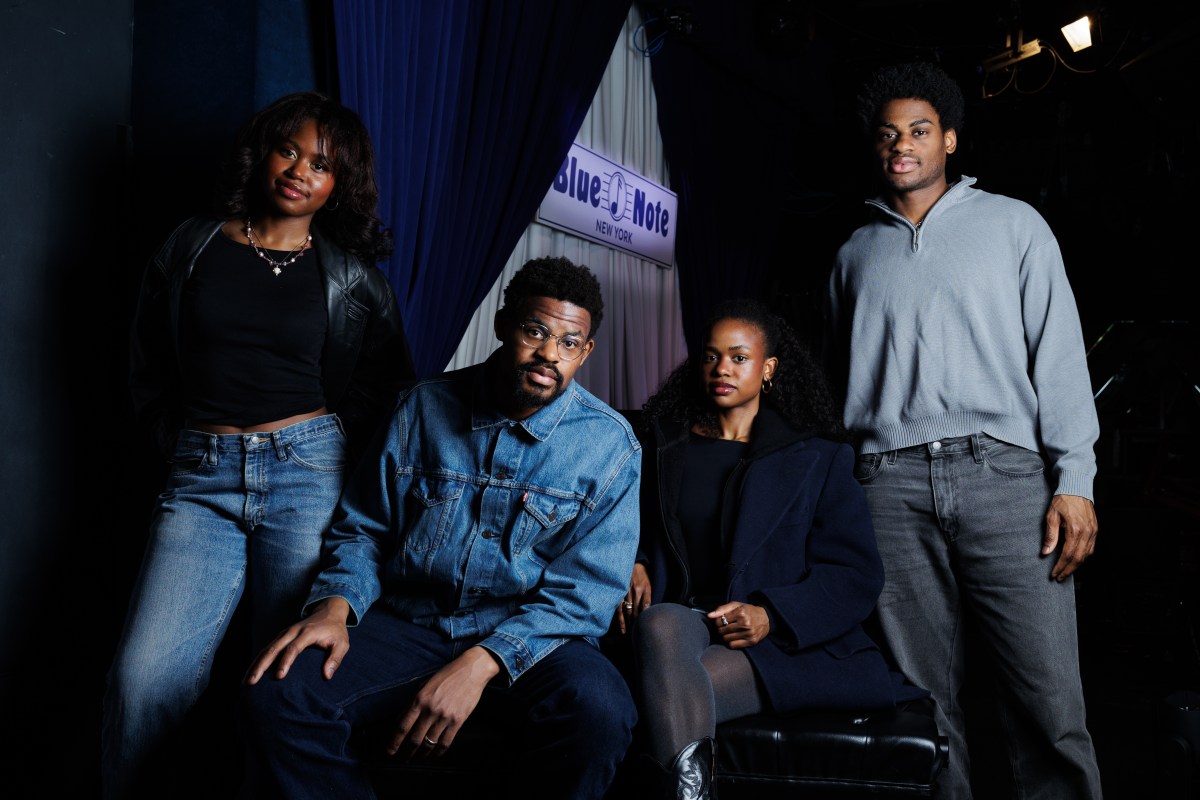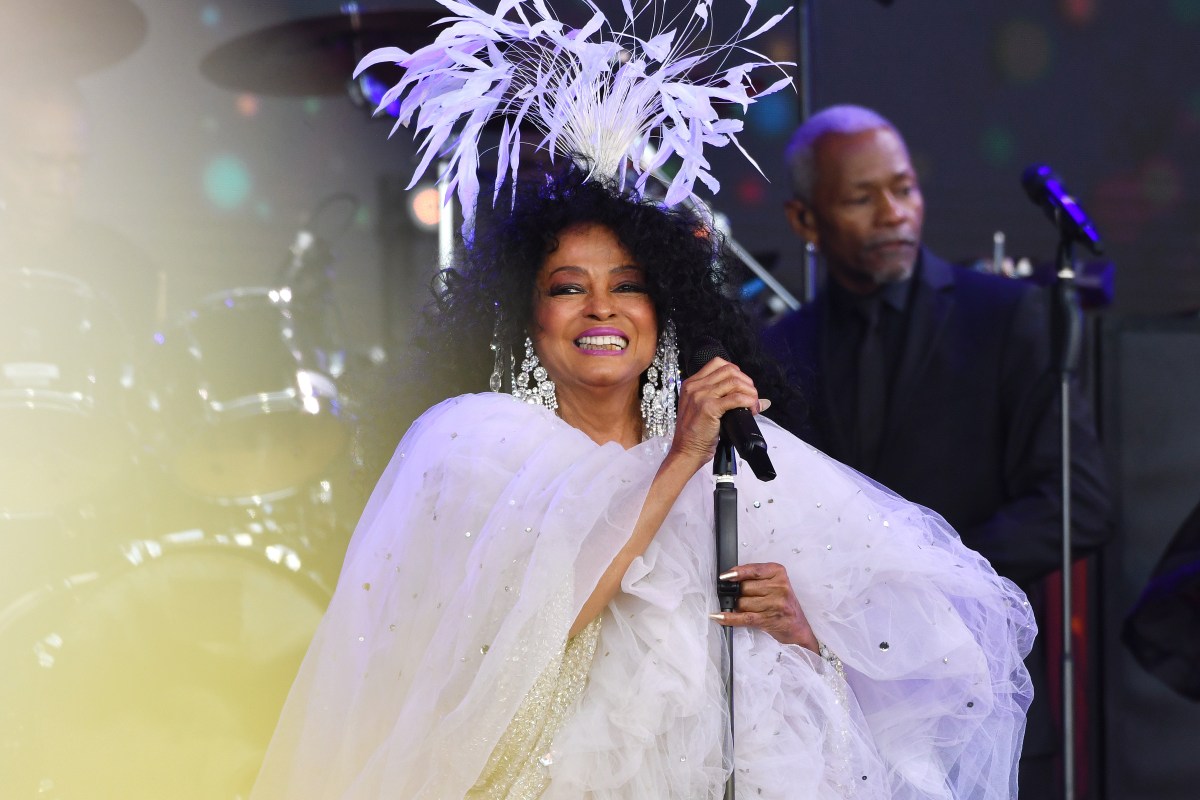Soft rock fans may know Infinity Song from their viral hit “Hater’s Anthem” but it’s the group’s grassroots foundation, gospel upbringing and intricate harmonies that landed them their first residency at the jazz staple, Blue Note, starting April 15.
Even before the song made them a TikTok sensation, the group had been gathering their fanbase one street performance at a time. Made of Abraham, Angel, Israel and Thalia “Momo” Boyd, the four siblings got their start playing in city parks and subway stations after relocating from Detroit in 2006.
After years, of on-the-ground efforts, their unique style caught the attention of Brooklyn-born Jay-Z. In 2016, he signed them to his label Roc Nation and they produced their first album under the label “Mad Love” in 2020.

Their songs float between idyllic lullabies like “Slow Burn” or apparent journeys of self-discovery like “Pink Sky” or “Metamorphosis”. Each member composes, produces and writes songs that bounce between serious and smug, adding to a fresh flavor that boundary-less Gen-Z has embraced.
With the recent release of Beyonce’s country album, modern culture has been leaning into artists with alternative expression — something Infinity Song has been doing since their inception.
Being the children of church musicians, the Boyds can’t recall a time when they weren’t involved in music. John Boyd, the patriarch of the family, led choirs throughout their adolescence so even as kids they were instrumental in perfecting musical compositions for the church.
“It was a unique upbringing because we would workshop the arrangements for the choirs at home around the kitchen table and then we would go into rehearsals and all of us kids would be section leaders and would teach the parts to the larger choir,” Abraham said.
Momo, vocalist and guitarist for the group, said though music was the norm, they were all given space to choose a career in music in their own time.
“It was definitely a way of life and the family culture kind of like a sports family or something like that,” Momo said. “Our parents really wanted to give us something that we could filter life through and use as a tool to gain perspective in different areas,” she told amNewYork.

It’s common for performers who started singing in church to fall into genres like RNB, pop or jazz. (See Whitney Houston, Aretha Franklin, etc.) But it was soft rock where Angel said each bandmate’s vitality shined through.
In between albums, the group began posting covers online and a rendition of Fleetwood Mac’s “Dreams”, revealed a hidden gem within the foursome.
“It felt really good in the process of arranging it [and] performing it. It really felt like we were all in our strengths. In one genre, maybe one or two people might perform better and then maybe another person might feel like my voice isn’t made for this genre,” Angel said. “But with this genre, it felt like we were all collectively playing to our strengths.”
Fans can still find religious undertones woven throughout their tracks– an inevitability according to Israel.
“Our faith comes across because it’s embedded in us, it’s a part of our thought process,” he said. “When I write, I’m just trying to write something that’s real. Oftentimes times the things that are most real have some sort of hopeful realization to it.”
An example of this is the popular “Hater’s Anthem” which Israel said has an inadvertent message of faith behind it. The song calls out the hyper-critical nature of modern society through smug, side-eyeing lyrics.
“I love the way it feels to be a hater/ Something so sweet about thinking that I’m better/ Just to wake up every morning/ Lay in bed and somehow never, ever rise to the occasion,” the song reads.
Bandmates claim the record has since sparked an introspective revolution among fans, with some reaching out to the band claiming the song inspired them to let go of their judgmental nature.
“The hater message and the flag of hater, it has a controversial vibe but I think Jesus would be such a fan of haters,” Angel said. “If you think about the character of Jesus, he was the most honest. He wasn’t afraid of the truth.”
“Haters” gained major love on social media, getting millions of views through TikTok’s main For You Page before they even released the full song on August 25, according to sources. TikTokers used the song over 56,000 times as background to funny skits. Following the viral hit, they’ve continued to sing on stages across the U.S. and frequently collaborate with musicians including Kanye West, Jon Batiste, Tori Kelly and more.
Infinity Song may have started on street corners but they’ll be taking center stage at Blue Note starting April 15, sharing the same platform storied musicians like Ray Charles and Robert Glasper once graced.
Their residency at the jazz joint located at 131 W 3rd St. runs until April 18. Tickets and show details can be found on the Blue Note website.
Read More: New queer rock festival in Coney Island to honor the memory of local musician

































